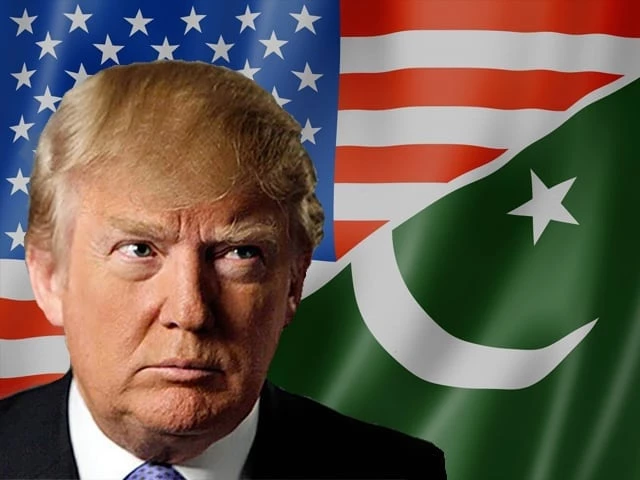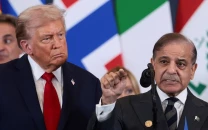Pakistan Foreign Policy Challenges: Post US Presidential Election 2024
The growing uncertainties in the global and regional political landscape create multiple challenges for Pakistan

Pakistan’s foreign policy is mired in multifarious challenges in the aftermath of US Presidential Election 2024, which have far-reaching impacts beyond the US borders.
These challenges are primarily instigated by mounting US-China rivalry, prevailing instability in the Middle East and Russia-Ukraine, and shifting geopolitical alliances. Pakistan must prudently navigate this complex global landscape to construct a foreign policy that best aligns with its national interests for sustainable peace.
The topmost challenge for Pakistan is to anticipate the intricate trajectory of Pak-US relations under President Donald Trump. Once, a key ally during the Cold War and War on Terror, Pakistan now finds itself in ambiguous position due to shifting US strategic priorities. According to a senior White House official, John Kirby, ‘’Pakistan has played a pivotal role in US counterterrorism efforts over the years but lacks a formal ally status through treaty obligations.’’ Furthermore, the US is more focused on curbing China’s influence as both are locked in a tight race for global supremacy.
Trump has vowed to impose 60 percent tariffs on Chinese imports, in a bid to halt its advancement. The US is also skeptical of Pak-China ‘al-weather strategic partnership’ and the imposition of sanctions on Pakistan’s ballistic missile program and Chinese research companies, substantiates this fact. The US’ perception of China as an enemy not just a competitor, leaves tough foreign policy choices for Pakistan, its closest ally. Thus, Pakistan have to walk through a diplomatic tightrope to manage its relations with both powers.
The vitriolic Pak-India relationship presents key challenges for Pakistan’s foreign policy, particularly after the revocation of Article 370 which scrapped off the Kashmir region of its limited autonomy. Pak has advocated for constructive engagement but India’s retrogressive steps have impeded prospects of cooperation. Conversely, the strategic partnership between US and India, with bolstering of India’s military capabilities through $3 billion mutual defense deal, added fuel to the fire. India has also gained the status of Indo-Pacific partner and engaged in US-initiated alliances such as Quadrilateral Security Dialogue (QUAD), to curb the expanding influence of China in the region. The growing US-India collaboration is a matter of grave concern for Pakistan as it exacerbates regional power imbalances. Pakistan should strengthen its defense posture, address its strategic vulnerabilities, and readjust its priorities to address these emerging challenges.
After Taliban’s takeover in Afghanistan in 2021, Pakistan has witnessed a sharp uptick in militant attacks, carried out by Tehreek-i-Taliban (TTP), which even targeted the Chinese nationals and put Pak-China ties at stake. The issue of Afghanistan remains central to Pak-US relations with Trump view of Pakistan as a safe haven for terrorism. With the incoming US administration,
Pakistan may come under heightened pressure to retaliate against the terrorist groups and dismantle the terrorist networks, otherwise it would impact its standing in Financial Action Task Force (FATF). Despite economic constraints, Pakistan has effectively managed a huge influx of Afghan refugees and always called on the international community to provide humanitarian support for Afghanistan. Both states must engage in fostering neighborly ties and address the mutual concerns for regional security.
Border security and terrorism issue remains at the center of Pak-Iran relations. Last year, Iran carried out attacks in Pakistan’s province of Baluchistan, claiming to target the militant organization, Jaish-al-Adl. However, both states prevented the situation from escalation through sustained diplomatic efforts rather that strict retaliatory measures, which could have worsened border security. Additionally, the Iran-Pakistan gas pipeline project is a symbol of mutual collaboration with the potential to strengthen bilateral relations.
However, US remains cynical about this project and cautioned of US sanctions if the project proceeded. Pakistan should adopt strategic diplomacy to protect its economic and strategic interests and foster good relations with both states.
The most pressing issue of time is the escalating conflict in the Middle East. Pakistan has strongly advocated for Palestinian’s rights at every forum. Many states are raising voice for Palestinians but the war shows no signs of de-escalation unless the US stops legitimizing Israel’s atrocities.
The US has provided carte blanche to Israel’s genocidal campaign in Gaza, amplifying Israel’s sense of impunity. While Trump has vowed to bring peace in the region but his handpicked pro-Israel cabinet would make it more difficult to pressurise the Zonist regime to stop its aggression in Gaza. With the situation unravelling in the Middle East, Pakistan must construct a foreign policy strongly advocating for Palestinian’s rights of self-determination.
The growing uncertainties in the global and regional political landscape create multiple challenges for Pakistan. With Trump returning to the corridors of power, it is expected that Pakistan would barely get much attention or support from the US this time which is preoccupied with other issues, notably China’s upsurge. For Pakistan, it is high time to redefine its priorities and play the diplomatic cards wisely to protect its broader national interests, based on mending ties with neighboring states, fostering enduring partnerships with regional states, and balancing ties with the great powers.
Pakistan must maintain its strategic partnership with China which has always gone an extra mile to support Pakistan. Pakistan should also engage with the US for economic partnership and counter-terrorism efforts. A focus on strategic autonomy and multilateral diplomacy would help in mitigating risks and exploring opportunities in an increasingly volatile global environment.
The writer is a researcher and analyst in Islamabad














COMMENTS
Comments are moderated and generally will be posted if they are on-topic and not abusive.
For more information, please see our Comments FAQ